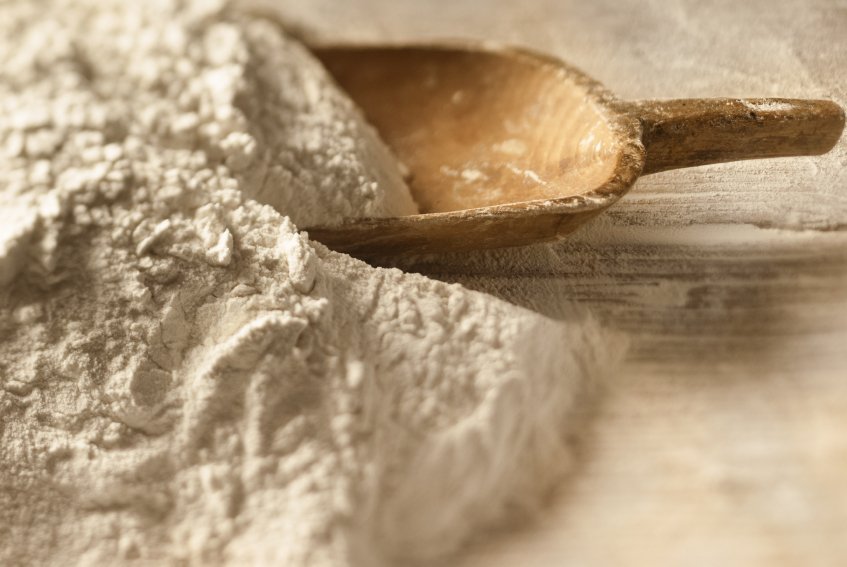Inside BENEO’s new pulse plant: pioneering sustainable protein from faba beans
Leading firms, including ITC, General Mills, Hindustan Unilever, Patanjali and Cargill, have agreed to start wheat flour fortification with iron, folic acid and Vitamin B12 of their flagship atta brands Aashirwaad, Pillsbury, Annapurna, Patanjali and Nature Fresh, respectively. They have already initiated the process and their fortified wheat flour would begin to be seen in the market in different regions by July or August 2017. They will scale up pan-India by December 2017.
In a meeting with Pawan Kumar Agarwal, chief executive officer, FSSAI, food industry associations like the Roller Flour Millers Federation of India (RFMFI), the Wheat Products Promotion Society (WPPS) and the Society of Indian Bakers (SIB) conveyed their commitment to start fortification of wheat flour and other products, such as biscuits, breads, rusks and cakes, at the earliest.
Agarwal stated,“The fortification standards and the logo for fortified foods, released by FSSAI recently, have provided a rallying point for food businesses to take up fortification on a large scale. With this, we can see a lot of traction amongst the food businesses to undertake the fortification of an entire range of their food products on a voluntary basis. FSSAI has also established a Food Fortification Resource Centre (FFRC) to facilitate and support food businesses in their fortification efforts. I am reasonably optimistic that fortified staple food will soon be available in the open market, and most states will soon switch over to using fortified foods in the government programmes.”
This decision is the outcome of a series of meetings convened by the Food Safety and Standards Authority of India (FSSAI) over the past two months with related businesses, including medium and small industry players and development partners, such as the Global Alliance for Improved Nutrition (GAIN), who have been associated with fortification of wheat flour over the past few years.
Several flour millers in Jammu and Kashmir, Madhya Pradesh, Rajasthan, Gujarat and Odisha are already providing fortified wheat flour. In several places in these states, fortified wheat flour is readily available. The decision of market leaders would prompt and encourage other flour millers to start fortification.
Ratan Gupta, chairman, WPPS, and former president, RFMFI and J N Kushwaha, president, SIB, have assured that their associations would now reach out to their members to adopt the fortification of wheat flour and other wheat-based products, as an industry practice. Raj Kapoor, managing director, Assocom Institute of Bakery Technology and Management (AIBTM), offered to provide all the technical support to the wheat flour milling and bakery industry to initiate fortification of their products.
Fortification of staple foods, including wheat flour, is gaining momentum. It is strongly backed by the scientific panel on fortification, medical experts and the academia. Fortification of wheat flour with iron, folic acid and Vitamin B12 offers one of the most feasible and cost-effective strategies to combat anaemia and other micronutrient deficiencies that impact more than 50 per cent of India’s population across the population groups and geographies, affecting all socio-economic classes equally. India has a fairly high consumption of wheat flour, with an average per person consumption of about 200-250g per day, equalling to an overall annual consumption of 63.3 million metric tonne (MMT).
On December 22, 2016, the Department of Food and Public Distribution, Government of India, has also issued guidelines recommending the States/Union Territories (UTs) to distribute fortified wheat flour as per FSSAI standards through the public distribution system (PDS). Fortified wheat flour is being supplied in West Bengal through PDS since 2000. Similarly, the government of the Andaman and Nicobar Islands has also been providing fortified wheat flour through the PDS. The government of Rajasthan will initiate the supply of fortified wheat flour through the PDS in July 2017.
With a view to reduce the high burden of micronutrient malnutrition, FSSAI has laid standards for fortification of wheat flour with iron, folic acid and Vitamin B12. Technical issues and challenges with respect to wheat flour fortification have been discussed and addressed. Guidelines are also being issued for fortified packaged foods, including such categories as breads, biscuits, rusks and cakes.
Stakeholders of the meetings on food fortification have agreed to jointly promote consumer-facing awareness, including the promotion of the national logo for fortified foods, symbolising better nutrition. Meetings have also been convened with the Retailers’ Association of India (RAI), and they have committed to promote the logo of fortified foods and provide a separate shelf to display fortified food products, which would be placed at a prominent eye-catching place at their points of sale.

